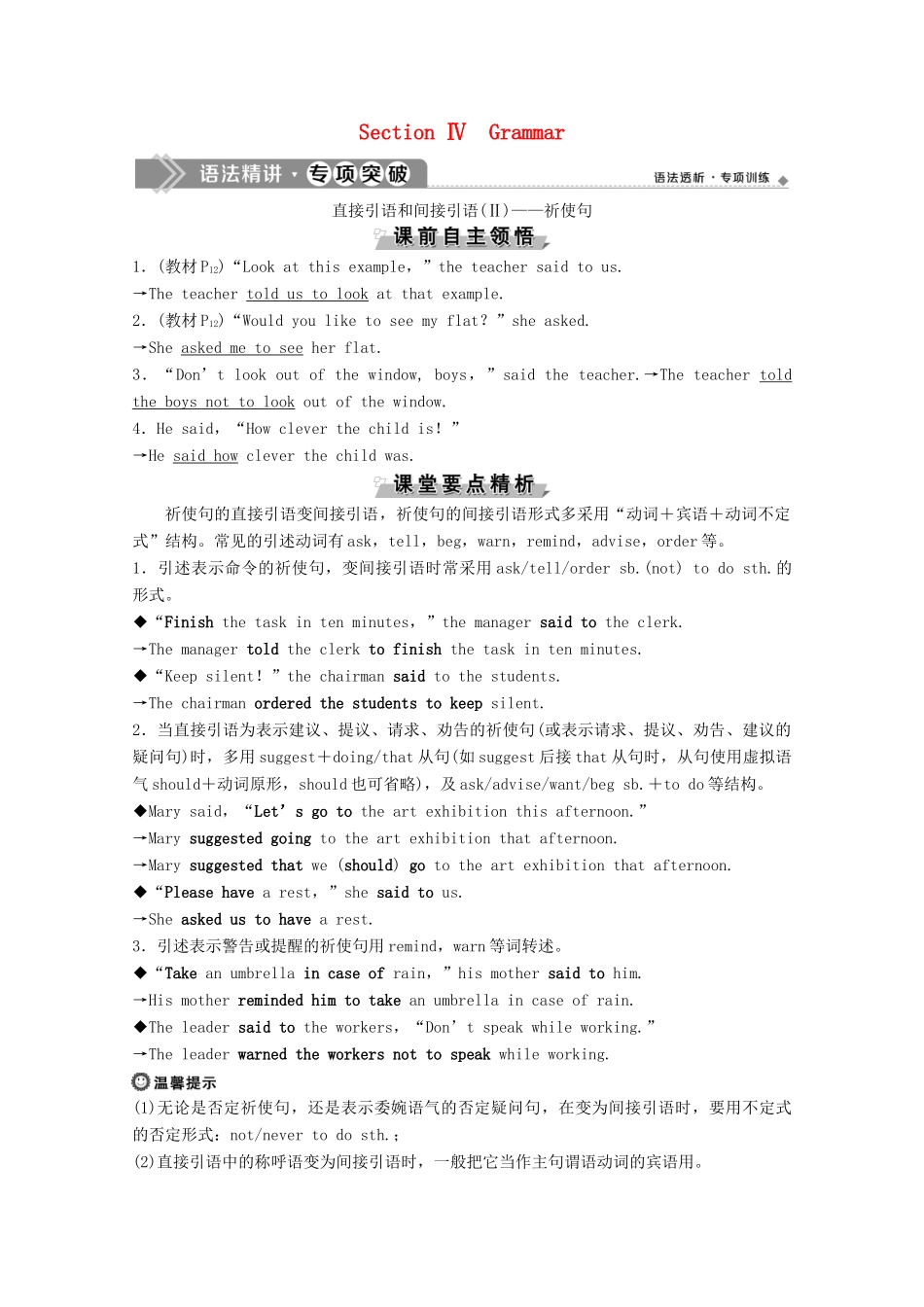Section Ⅳ Grammar直接引语和间接引语(Ⅱ)——祈使句1.(教材 P12)“Look at this example,”the teacher said to us.→The teacher told us to look at that example.2.(教材 P12)“Would you like to see my flat?”she asked.→She asked me to se e her flat.3.“Don’t look out of the window, boys,”said the teacher.→The teacher told the boys not to look out of the window.4.He said,“How clever the child is!”→He said how clever the child was.祈使句的直接引语变间接引语,祈使句的间接引语形式多采用“动词+宾语+动词不定式”结构。常见的引述动词有 ask,tell,beg,warn,remind,advise,order 等。1.引述表示命令的祈使句,变间接引语时常采用 ask/tell/order sb.(not) to do sth.的形式。◆“Finish the task in ten minutes,”the manager said to the clerk.→The manager told the clerk to finish the task in ten minutes.◆“Keep silent!”the chairman said to the students. →The chairman ordered the students to keep silent.2.当直接引语为表示建议、提议、请求、劝告的祈使句(或表示请求、提议、劝告、建议的疑问句)时,多用 suggest+doing/that 从句(如 suggest 后接 that 从句时,从句使用虚拟语气 should+动词原形,should 也可省略),及 ask/advise/want/beg sb.+to do 等结构。◆Mary said,“Let’s go to the art exhibition this afternoon.”→Mary suggested going to the art exhibition that afternoon.→Mary suggested that we (should) go to the art exhibition that afternoon.◆“Please have a rest,”she said to us.→She asked us to have a rest.3.引述表示警告或提醒的祈使句用 remind,warn 等词转述。◆“Take an umbrella in case of rain,”his mother said to him.→His mother reminded him to take an umbrella in case of rain.◆The leader said to the workers,“Don’t speak while working.”→The leader warned the workers not to speak while working.(1)无论是否定祈使句,还是表示委婉语气的否定疑问句,在变为间接引语时...


